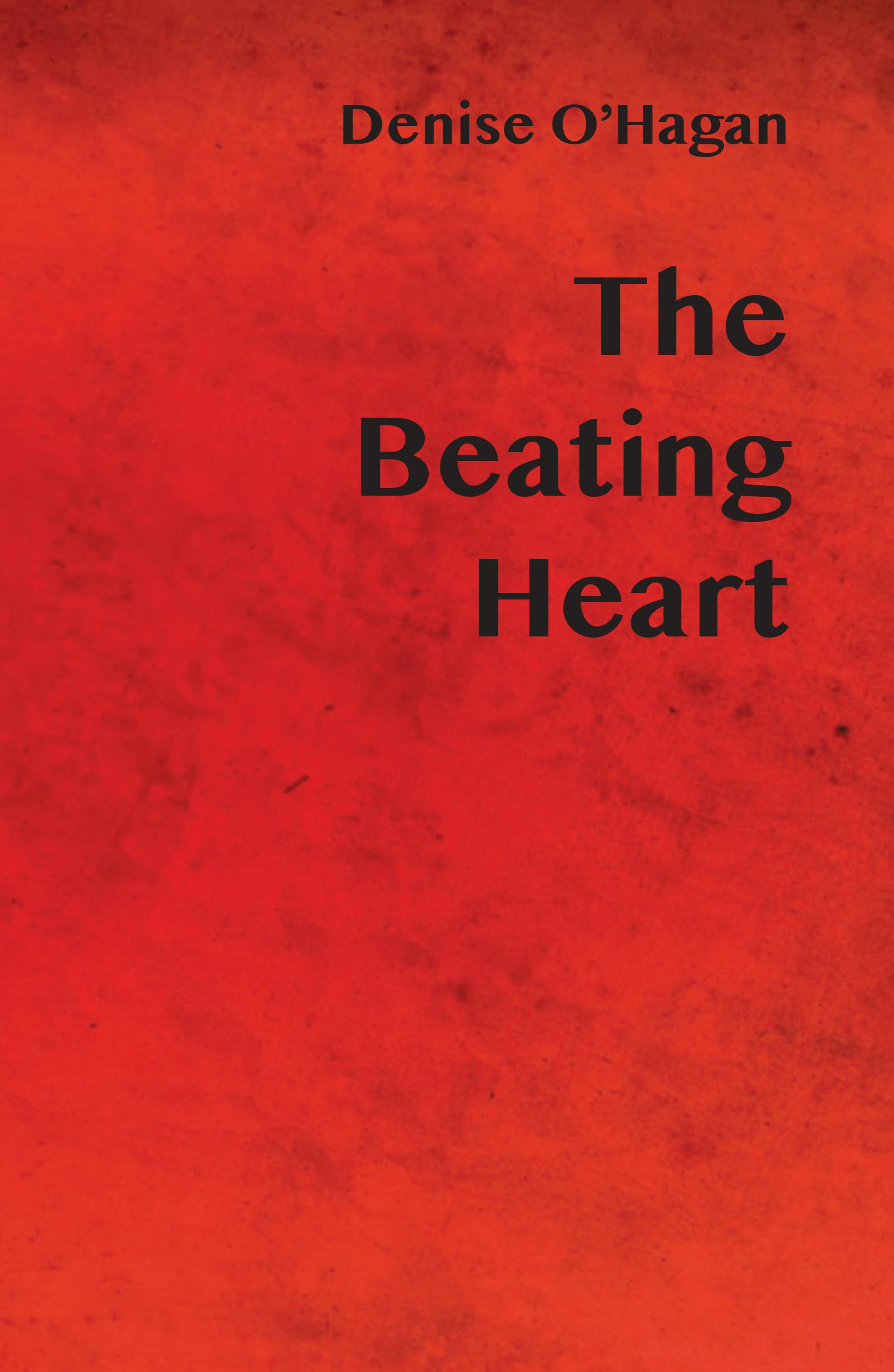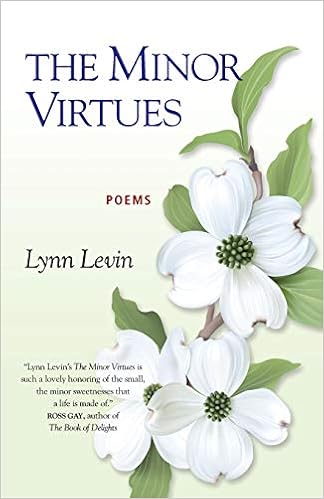 O’Hagan does a beautiful job of describing the Italy of her childhood—the buildings, fountains, news items, a walk with her parents, conversations, cobblestones, the loss of a friend, or a roadside drive. There’s a sense that every detail is both intensely private, and absolutely important—a universal artefact that must be shared with the reader
O’Hagan does a beautiful job of describing the Italy of her childhood—the buildings, fountains, news items, a walk with her parents, conversations, cobblestones, the loss of a friend, or a roadside drive. There’s a sense that every detail is both intensely private, and absolutely important—a universal artefact that must be shared with the reader
Category: Book Reviews
Book Reviews
A review of The Minor Virtues by Lynn Levin
 I don’t usually consider virtue amusing, but Lynn Levin’s new book of poetry The Minor Virtues had me laughing out loud. In a reading I attended, she called it her most cheerful book yet. She said she wanted to focus on not the big virtues like patience and temperance, but what she called the minor virtues that she elicited from paying attention to small moments and looking in deeply.
I don’t usually consider virtue amusing, but Lynn Levin’s new book of poetry The Minor Virtues had me laughing out loud. In a reading I attended, she called it her most cheerful book yet. She said she wanted to focus on not the big virtues like patience and temperance, but what she called the minor virtues that she elicited from paying attention to small moments and looking in deeply.
A review of A Man Called Ove By Fredrick Backman
 An incredibly moving novel, I am glad I read this book as a ‘gateway’ book to other adult books. I would suggest this is a book for young adults (15-18) and adults, as some themes can be quite intense for younger readers. Overall, a beautiful story with strong messages and an emotional ending – you’ll need the tissue box for this one!
An incredibly moving novel, I am glad I read this book as a ‘gateway’ book to other adult books. I would suggest this is a book for young adults (15-18) and adults, as some themes can be quite intense for younger readers. Overall, a beautiful story with strong messages and an emotional ending – you’ll need the tissue box for this one!
A review of Sea Glass Catastrophe by Quinn Rennerfeldt
There is music in Sea Glass Catastrophe words flow sometimes in a precipitous way, others with measured and a toned-down cadence with a sprinkle of sharp notes. In this chest of surprises we read poems that tell us of pain and hunger, joy and search, sinning and redemption. Some of the poems are mirrors with many faces, crystals that are coloured by Quinn’s creativity.
A review of Convenient Amnesia by Donald Vincent
 This collection by Donald Vincent deserves to be read not just for his lyrical lines but because his poems bring emotional life to a cultural crisis. Books of poetry like Vincent’s convey social and personal histories that affirm and remind, that interrupt tendencies of convenient amnesia.
This collection by Donald Vincent deserves to be read not just for his lyrical lines but because his poems bring emotional life to a cultural crisis. Books of poetry like Vincent’s convey social and personal histories that affirm and remind, that interrupt tendencies of convenient amnesia.
A review of What Kind of Man by Tony Gloeggler
 These poems are all very New York-y, another source of the gritty joie de vivre at the heart of his outlook. Having been born in New York and lived his entire life in New York, this is natural, but it informs Gloeggler’s attitude, and there’s so much New York atmosphere, from scenes, neighborhoods, personalities, institutions, the public transportation.
These poems are all very New York-y, another source of the gritty joie de vivre at the heart of his outlook. Having been born in New York and lived his entire life in New York, this is natural, but it informs Gloeggler’s attitude, and there’s so much New York atmosphere, from scenes, neighborhoods, personalities, institutions, the public transportation.
A review of Imperfect by Lee Kofman
 I’d be lying if I said I didn’t spend time Googling these people, or that I wasn’t fascinated by the whole notion of what constitutes beauty – and the way in which it’s judged. Kofman doesn’t pretend to have an answer—Imperfect is not a didactic book, and nor does it present a thesis that beauty is more than ‘skin deep’ and that judgement in any form is bad–we cannot help gazing at the beautiful or indeed the shocking. What the book does show however, is that these are complex and important questions to raise and that familiarity and reflectiveness are a means to better understanding who we are.
I’d be lying if I said I didn’t spend time Googling these people, or that I wasn’t fascinated by the whole notion of what constitutes beauty – and the way in which it’s judged. Kofman doesn’t pretend to have an answer—Imperfect is not a didactic book, and nor does it present a thesis that beauty is more than ‘skin deep’ and that judgement in any form is bad–we cannot help gazing at the beautiful or indeed the shocking. What the book does show however, is that these are complex and important questions to raise and that familiarity and reflectiveness are a means to better understanding who we are.
Remembering Cats Eye
 Margaret Atwood’s Cat’s Eye was shortlisted for the Booker prize in 1989. I haven’t read The Remains of the Day, the book that won, but it doesn’t matter. Cat’s Eye was robbed. Every sentence in the novel’s 498 pages serves the whole beating heart of it. No word is superfluous. Each one is a mini portal, transporting us and the main character, Elaine, back into memories without warning, exactly as Atwood intended.
Margaret Atwood’s Cat’s Eye was shortlisted for the Booker prize in 1989. I haven’t read The Remains of the Day, the book that won, but it doesn’t matter. Cat’s Eye was robbed. Every sentence in the novel’s 498 pages serves the whole beating heart of it. No word is superfluous. Each one is a mini portal, transporting us and the main character, Elaine, back into memories without warning, exactly as Atwood intended.
A review of Virginia Woolf and the Women who Shaped her World by Gillian Gill
Gill’s book is a tour de force in bringing together information about Virginia Woolf’s Pattle ancestors and the Thackeray connection; in showing the damaging patriarchal milieu out of which she fought her way, and in highlighting her use of autobiographical material in her novels.
A review of No Finis by Deborah Woodard
 Woodard’s sections are simultaneously beautiful and prosaic, terrifying and enraging. The workers are mostly women, many immigrants who spoke little English yet were still forced to testify in English, despite there being an available translator. The women’s conditions, both in the workspace and also as humans, are on full display in the courtroom, and Woodard opens the door for readers to understand the workers positions.
Woodard’s sections are simultaneously beautiful and prosaic, terrifying and enraging. The workers are mostly women, many immigrants who spoke little English yet were still forced to testify in English, despite there being an available translator. The women’s conditions, both in the workspace and also as humans, are on full display in the courtroom, and Woodard opens the door for readers to understand the workers positions.